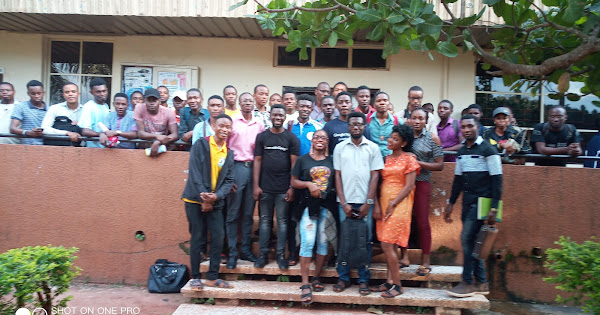-
Name: Ohai Blessing
Name of Organisation: The Nigerian Society of Engineers Student Branch (NSE-SB) Faculty of Engineering, University of Nigeria (Nsukka). -
Name Of event: MakerWare Design Programme
-
Email address: nsestudentbranchunn@gmail.com
-
What open science hardware tool(s) will be the focus of your event?
Arduino UNO kits
ESP 32/8266 kits
Actuators
Sensors
Electrical/Electronic components
Internet Bundle -
Describe your course or workshop, whom and what it is for, where and when it will be held, and how many attendees (IRL or virtual) you expect.
The “MakerWare Design Programme” is an embedded system design training that is part of our Professional Development Programme and held every semester to teach novices/beginners how to design and implement embedded/electronic systems using open-source tools. The training will be held at the Faculty of Engineering – University of Nigeria, Nsukka, from the 15th - 27th of May, 2023. It would be a physical program and about 200 persons are expected to be in attendance consequent to past programmes. The programme is scheduled to hold 3-hours per day for three times a week over the course of two weeks. -
Do you have plans for ongoing activities after this event OR is it intended that the participants will continue activities after this event? If so, describe the intentions and plans here.
Yes, we have made plans to host a “3D CAD printing” programme after the “MakerWare Design Programme” during which students will learn how to design and prototype 3D models, and again employ all that they will learn from the 2-weeks “MakerWare Design Programme” and prototype an idea/product. Also, we would hold subsequent meetups for follow up as we are a tech community. -
What event outputs (e.g. teaching materials, curricula, software, etc.) will you make available? Will these outputs carry an open license?
We would use open-source tools for the design and implementation sessions in this programme and our curriculum and teaching materials would be documented and made available via GitHub too. -
What you will use the grant for, roughly.
Based on inflation adjusted estimations -
$320 - for Purchasing the equipment and components for the programme
$180 - for Logistics and Technical Support -
Provide links (references) to documentation or reviews of similar events or works you have executed. School coursework or projects can be listed, even social media posts. Anything to give a sense of what you’re about and your ability to successfully conduct this
course or workshop. To keep this short, just the links and their descriptions will do.
1 Like
